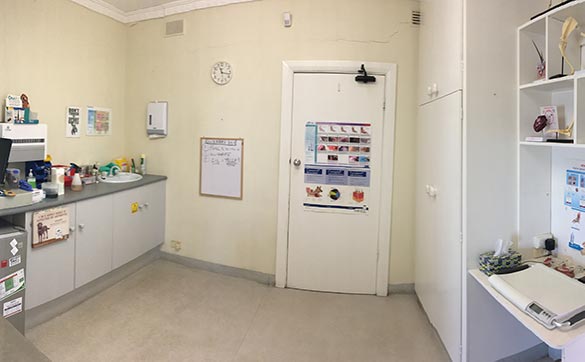Dr Kens Vet Clinic (with easy parking and wheel chair access) routinely performs desexings for in house Para Hills and Adelaide Vets on Wheels patients. Desexing is the most commonly performed surgery in any vet clinic and requires a skilled Veterinary Surgeon as well as trained staff and a properly equipped surgery and surgical theatre.
Our surgery in Para Hills West.


Desexing is important because it protects your pet from many things such as straying in traffic, fights with other cats or dogs and contagious disease. It is also the best way to prevent pregnancy resulting in stray, unwanted and uncared for baby animals.
Recently (March 2019) South Australia introduced a new law to ensure that all pets in Para Hills area and South Australia are desexed by six months of age. In short it says that:
“Desexing is compulsory in SA for all dogs and cats born after 1 July 2018. Cats and dogs have to be desexed by the age of six months, or within 28 days of when you take possession of a new animal. The new desexing law is aimed at reducing the number of unwanted dogs and cats that end up in shelters every year.”
For more information on this please visit
While the most frequently asked question in the past, “should I have my pet desexed?”, may have been answered, legitimate concerns and questions regarding desexing remain.
The most commonly asked questions are:
Is desexing harmful to my pet?
No. Performed by a registered Veterinary Surgeon this is a routine surgery which is minimally invasive with a quick recovery period. Generally your pet will be back to normal by the next morning.
Will this change my pets personality?
Desexing at 4-6 months of age will mean that your pet will not reach full sexual maturity. This means that the behaviours associated with reproduction will not express themselves. This is a good thing because it prevents such behaviours as: Straying to look for a mate or fighting with a rival suitor (cat fight abscesses, wounds or feline aids are some of the risks with fighting).
Desexing also lowers the risk of contracting sexually transmitted diseases and other conditions associated with the reproductive tract such as uterus infections, prostate cancer or ovarian cysts to name a few.
Will they get fat?
Pets that are desexed later in life can become “fat and lazy” if you do not adjust their diet. This is because the daily energy requirement drops significantly after desexing. Adjusting their calorie intake and daily walks in the many parks of the Southern Suburbs including Para Hills and Para Hills West should be enough to stop this from happening.
If your animal is desexed at the specified age (4-6 months of age), this should not be a problem.
The Cost:
As a rule desexings at Dr Kens Vet Clinic in Para Hills West are affordable. The charges are based on the type of animal, it’s sex, age, and bodyweight. A good investment considering the many problems it prevents. If you have any questions on costs or want to talk to us about desexing your pet please call Dr Kens Vet Clinic (in Para Hills West) on 82816400 and Shannon or I will be happy to chat.

